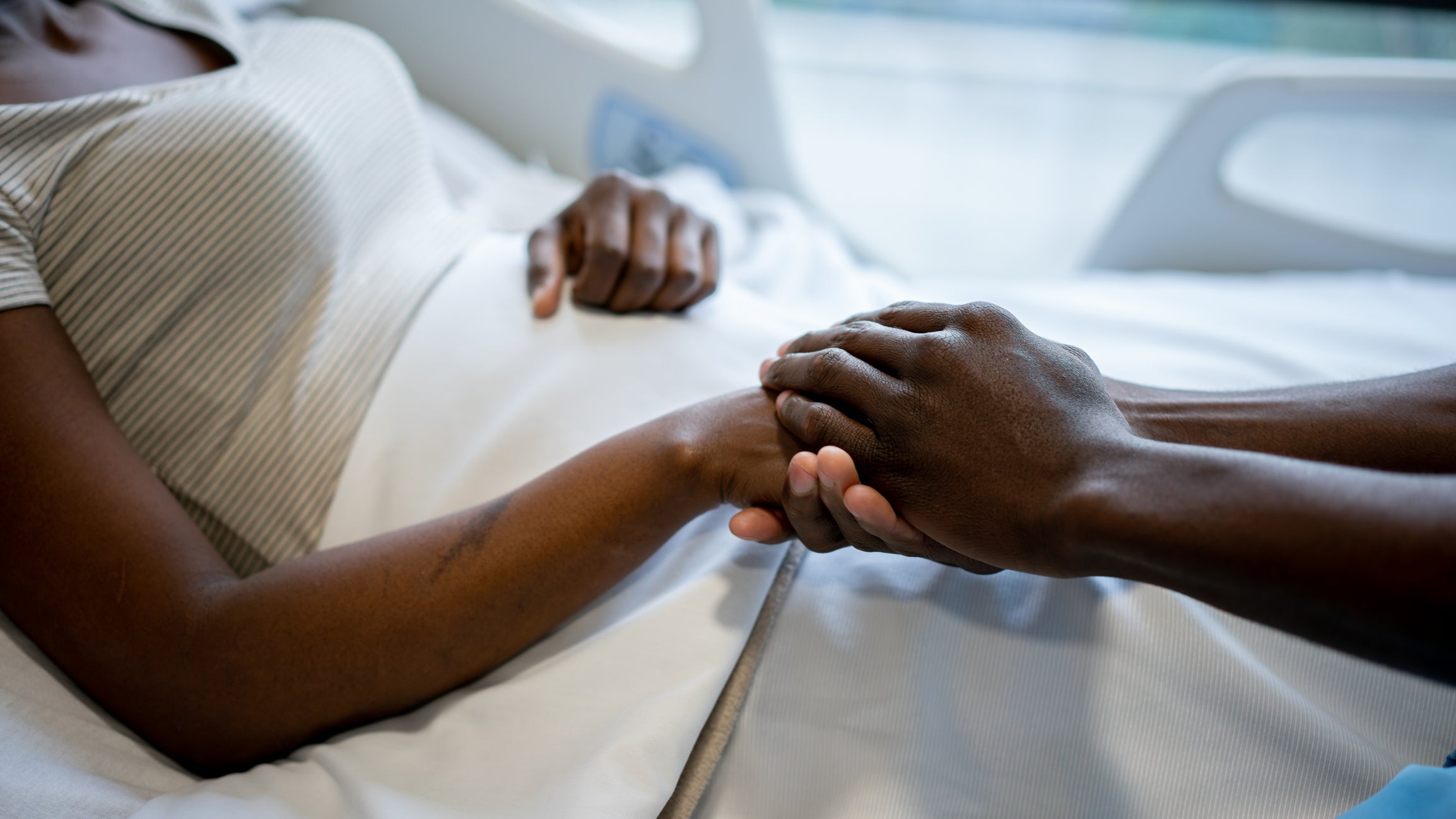It’s time to tackle health inequality – starting with sickle cell care
Sickle cell overwhelmingly affects Black people. Our inquiry was told over and over again that people living with sickle cell were treated with suspicion and experienced negative reactions when seeking help


Your support helps us to tell the story
From reproductive rights to climate change to Big Tech, The Independent is on the ground when the story is developing. Whether it's investigating the financials of Elon Musk's pro-Trump PAC or producing our latest documentary, 'The A Word', which shines a light on the American women fighting for reproductive rights, we know how important it is to parse out the facts from the messaging.
At such a critical moment in US history, we need reporters on the ground. Your donation allows us to keep sending journalists to speak to both sides of the story.
The Independent is trusted by Americans across the entire political spectrum. And unlike many other quality news outlets, we choose not to lock Americans out of our reporting and analysis with paywalls. We believe quality journalism should be available to everyone, paid for by those who can afford it.
Your support makes all the difference.Evan Smith was a young man with his whole life in front of him. Just 21 years old, he died in North Middlesex Hospital after a terrible series of tragic and avoidable mistakes and failures which brought issues to the fore that have been familiar to sickle cell patients for years.
The coroner’s report into Evan’s death, published earlier this year prompted the all party parliamentary group (APPG) on sickle cell and thalassaemia, which I chair, to launch a full select committee-style inquiry into the treatment of people with sickle cell. We took evidence over several weeks from sickle cell patients, clinicians and policy makers, and received over 100 written submissions.
Whilst we found a good degree of confidence in haematology units and specialist parts of the NHS system among sickle cell patients, there was a huge gulf between that and people’s experience of the “front door” of hospitals and the more general parts of this system.
Sickle cell patients undergo periods of “crisis” – bouts of agonising pain caused by the cells restricting blood flow around the body – which require frequent hospital visits.
We heard evidence over and over again of people experiencing a lack of understanding of their condition when one of these crises occurs, a lack of staff training in how to deal with sickle cell, people having to battle for pain relief to deal with the condition, being treated with suspicion when seeking this pain relief, failures of communication between the generalist parts of the NHS system and the specialist parts, and of agreed protocols and care plans regularly being ignored.
All of this has led many people with sickle cell to distrust the very healthcare system that is there to help them. This means that a number of sickle cell patients will avoid going to hospital even when they should because they have found the experience so debilitating and exhausting on previous occasions.
As well as Evan’s death, we heard about a number of near misses, rooted in the same failings of lack of understanding, lack of communication and a failure to respond properly to the patient. These serious failings were not set out for the inquiry only by patients, but were also acknowledged by clinicians and experts in the condition. This is not acceptable for any group of patients and it cannot be allowed to continue.
Our recommendations include more and better training for staff, proper adherence to agreed systems for the administration of pain relief and other care protocols, better communications between different parts of the system so that, for example, a haematology department will always be informed when a sickle cell patient is admitted to the hospital, and more research into the condition to develop new treatments.
Underlying all these individual recommendations in our report are two more fundamental points. Firstly, that these issues are not new and have been raised time and time again over the years. This has produced a great deal of anger and frustration among those living with sickle cell who feel they have not been listened to. We want this time to be different.
To keep up to speed with all the latest opinions and comment sign up to our free weekly Voices Dispatches newsletter by clicking here
Secondly, the question of race. Sickle cell overwhelmingly affects Black people. People of every race have a right to equality in health treatment. Yet our inquiry was told over and over again that this equality was not there, that people living with sickle cell were treated with suspicion and experienced negative reactions when seeking help. All this led to substandard care. These experiences show inequalities in the healthcare system which must be addressed.
The report’s findings are shocking and sobering, but perhaps there is also a reason for hope. The Covid pandemic has exposed the inequalities in healthcare which have been there for a long time. The secretary of state has said he wants to tackle “the disease of disparity” and address these inequalities. Perhaps the experience of the pandemic can instil a will to address these inequalities which has not been there in the past.
The secretary of state for health has already agreed to meet me and representatives of the Sickle Cell Society to discuss the report’s findings. To start tackling health inequalities, we must address the lack of understanding that people with sickle cell have had to deal with for far too long.
Pat McFadden is the Labour MP for Wolverhampton South, shadow economic secretary and chair of the APPG for sickle cell and thalassaemia
Join our commenting forum
Join thought-provoking conversations, follow other Independent readers and see their replies
Comments